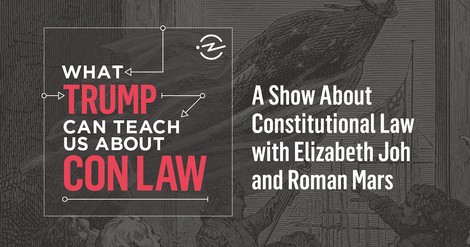Your podcast discovery platform
Curious minds select the most fascinating podcasts from around the world. Discover hand-piqd audio recommendations on your favorite topics.

piqer for: piqd Boom and bust Climate and Environment Global finds Globalization and politics Health and Sanity Technology and society Doing Good Deep Dives
Malia Politzer is the executive editor of piqd.com, and an award-winning long-form journalist based out of Spain. She specializes in reporting on migration, international development, human rights issues and investigative reporting.
Originally from California, she's lived in China, Spain, Mexico and India, and reported from various countries in Africa, Europe and the Middle East. Her primary beats relate to immigration, economics and international development. She has published articles in Huffington Post Highline, The Economist, The Wall Street Journal, Vogue India, Mint, Far Eastern Economic Review, Foreign Policy, Reason Magazine, and the Phoenix New Times. She is also a regular contributor to Devex.
Her Huffington Post Highline series, "The 21st Century Gold Rush" won awards from the National Association of Magazine Editors, Overseas Press Club, and American Society of Newspaper Editors. She's also won multiple awards for feature writing in India and the United States.
Her reporting has been supported by the Pulitzer Center on Crisis Reporting, The Institute For Current World Affairs, and the Global Migration Grant.
Degrees include a BA from Hampshire College and MS from Columbia University Graduate School of Journalism, where was a Stabile Fellow at the Center for Investigative Journalism.
Podcast: How Trump's Supreme Court Choice Could Block Abortion Access In The US
This excellent podcast, "What Trump Can Teach Us About Con Law", takes a hard look at US President Trump's tweets, erratic policies and activities to teach listeners about American constitutional law.
Why? Because Trump is a president like no other and seems intent on using his power to change the United States in unprecedented ways. Can he really do the things he says he will, and are his actions—for example, separating families on the border—even legal? This podcast tries to answer those questions by looking at the US Constitution.
In the most recent episode, "Roe", University of California, Davis Law professor Elizabeth Joh looks at how Trump's second Supreme Court pick could potentially affect the Roe v. Wade ruling that made abortion legal in the United States. The podcast delves into the history of the case and the constitutional groundings of the decision, and makes predictions about the future. It also looks at Trump's Supreme court nominee, Brett Kavanaugh, and speculates on how his appointment might alter the balance.
She concludes that a more conservative Supreme Court could change the Roe ruling in two primary ways. First, it could uphold many more types of restrictions on abortions, just short of making it illegal altogether. For example, some of the restrictions that already exist include waiting periods, counseling requirements, requiring abortion providers to be doctors, and limiting where abortions can take place. The second is that it could allow more conservative states to pass policies making access to abortion all but impossible. For example, forbidding abortions after a fetal heartbeat can be detected (which can happen as early as six weeks of pregnancy).
Finally, it's possible that a Supreme Court with five conservative justices could potentially overturn Roe v. Wade entirely, since the precedent is entirely based on a previous Supreme Court's interpretation of the US Constitution—making abortion in the United States illegal.
